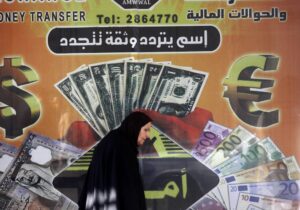When the International Court of Justice ruled on July 19 that Israel’s policies and practices in the Occupied Palestinian Territories were unlawful, “tantamount to the crime of apartheid” according to the president of the Court, it was a vindication for Palestinians, their allies, and human rights organizations who have been saying the same for decades. For 75 years, Israel’s theft of Palestinian land, its illegal settlement enterprise, and the systemic discrimination against Palestinian citizens of Israel have all contributed to the more extensive apartheid system. Still, they do not constitute Israel’s entire plan to ethnically cleanse the land and deny any form of Palestinian liberation. Too often, the intentional system that economically fragments and dispossesses Palestinians is overlooked.
This system imposes economic restrictions on Palestinians, marginalizing them and strippingaway their economic agency while inhibiting their ability to receive aid, participate in the global economy, and access financial services. It manifests through the manufactured necessity of aid, legal frameworks that criminalize direct and mutual aid, and obstructive, discriminatory policies from private and governmental entities. When placed in this context, there is one clear way to describe this system of financial exclusion and institutional sabotage – financial apartheid.
It is nearly impossible for development and rehabilitation to occur against the backdrop of sustained, engineered political and economic destabilization; a fact which precedes October 7 but has stood out in stark relief since. By refusing to provide Palestinians the support required from occupying powers under international humanitarian law and actively obstructing any means to support themselves, the Israeli state has de facto required international actors to fulfill the needs of Palestinians living under occupation. The current crisis in Gaza is not the source of this engineered reliance, and any claim that it is belies Israel’s 17 year Israeli siege and blockade of Gaza (itself a form of economic warfare against Palestinians) which devastated the Strip’s economy. Rather, it has exacerbated this manufactured necessity and underscored how it contributes to the economic marginalization of Palestinians.

